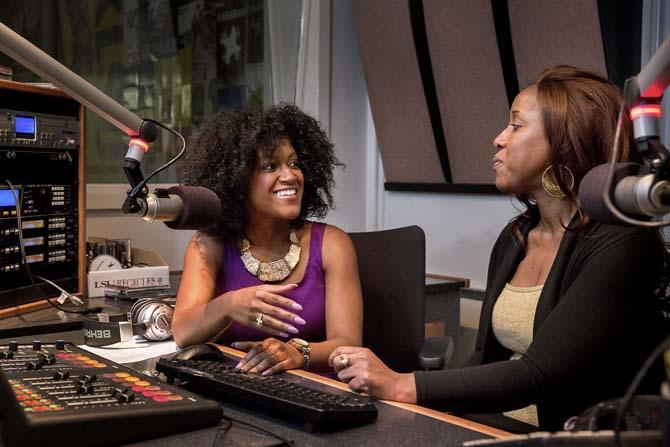When a University professor and psychology student team up to explore the underlying themes of black motherhood in hip-hop and R&B music, the results can be empowering.
Cassandra Chaney, associate professor of Child and Family Studies and Arielle Brown, psychology senior, submitted national research regarding these issues and will be hosting a panel entitled “Is Black Motherhood a Marker of Oppression or Empowerment? Hip-hop and R&B Lessons about ‘Mama’” on Feb. 25 at the LSU Women’s Center.
Chaney and Brown recently partnered with each other through LSU’s Ronald E. McNair Research Scholars to embark on the study of two music genres that continue to define generations.
Chaney said prior to beginning this project, she was already researching how African-American families are represented in the media. However, as the project developed, the focus shifted specifically to black motherhood and its presence in hip-hop and R&B songs.
“I find it amazing how this project defied many stereotypes, as far as mothers and hip-hop, because a lot of people see it [hip-hop] as super violent,” Brown said. “It’s surprising, when you peel off the surface and look underneath, what great messages these artists have of their mothers.”
The majority of her research with Brown showed black motherhood is a symbol of empowerment and not oppression, Chaney said.
“Internally, there is a lot of strength related to their decision to become mothers,” Chaney said.
At its core, hip-hop is more racially and socially conscious, while R&B has more of an emotional sensitivity to it, focusing on love and romance, according to Chaney.
While taking a hip-hop and religion class, Brown said she learned about the music genre and the platform it became for many African-Americans to talk about racial issues. She also said hip-hop songs from different decades highlight the different aspects of life within the African-American community at that time.
The duo examined 59 songs and identified four typologies related to black motherhood, Chaney said.
Brown said the research also explores previous literature in terms of how hip-hop has changed, examining songs from as early as 1950.
The women agreed that their research ultimately suggests the strength of black mothers.
“Of course, in terms of society, black women are most likely to be head of single mother households, and there are lots of challenges associated with that reality. But the song lyrics we analyzed really speak to the strengths of these women and the support they received in their role as single parents,” Chaney said.
Hip-hop, R&B genres empower African-American mothers
January 23, 2014




